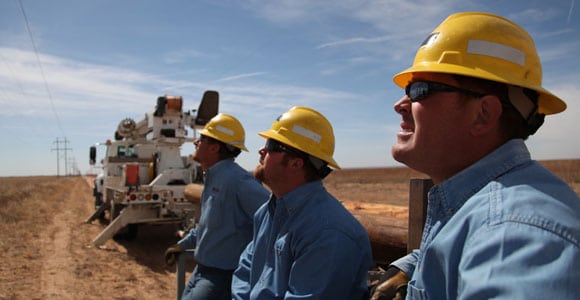An opportunity to celebrate the enormous impact co-ops continue to have on Tennessee

Electric cooperatives and other members of the co-op family take center stage each October. National Cooperative Month recognizes co-ops for the qualities that make the business model unique: local democratic control, commitment to supporting the communities they serve and improving quality of life and special benefits and services.
“Rural economies face challenges beyond thouse typically experienced by more populated and industrialized areas,” says Charles Curtis, president of the Tennessee Council of Cooperatives. “To be a farmer or small-business owner in today’s economic and political climate takes significant capital, polished managerial skills, high levels of information and resources and cooperation. Actively supporting established co-ops and knowing how to form new ones can help communities find the power in themselves to improve lives, produce products, create secure or expand markets and contribute to the economic well-being of the state.”
“Cooperatives are special,” says David Callis, executive vice president and general manager of the Tennessee Electric Cooperative Association. “We have an obligation to provide reliable, affordable and safe electricity, but we take that a step further. We also have a responsibility to support our members, enrich our schools and enhance our communities.”
Tennessee’s co-ops are proud to be a part of America’s cooperative network, which employs more than 850,000 people. Across the nation, 29,000 co-ops and credit unions generate $74 billion in annual wages and nearly $500 billion in revenue.
Tennessee’s electric cooperatives enable thousands of businesses to engage in trade and commerce, but they also have their own significant economic impacts on our state. They provide jobs to more than 2,600 employees with an annual payroll of more than $94 million. They pay more than $63 million in taxes that help support schools and local infrastructure.
“Electric cooperatives were formed because rural communities were struggling for lack of investment,” Callis explains. “Neighbors banded together and lit up the countryside when no one else would. That’s what we celebrate each October.”
In addition to co-op utilities, Tennessee residents are served cooperatively by credit unions, food co-ops, agricultural co-ops and more! Visit tennesseecouncilofcoops.org to learn more and find a co-op near you.
What makes electric cooperatives different?
Electric cooperatives are not-for-profit utilities owned and regulated by the consumers we serve. We improve lives in our rural and suburban service areas through affordable and reliable energy, economic development and education of tomorrow’s leaders.
 Co-ops are member-owned and -regulated
Co-ops are member-owned and -regulated
Electric co-ops are owned by the members we serve. Members elect directors to represent their interests and set policy and procedures for the co-op.
Co-ops were formed by members more than 75 years ago to bring low-cost, reliable energy to our members. Today co-ops are modern, technologically advanced businesses serving rural and suburban areas, but our mission and purpose have not changed.
 Co-ops are not-for-profit
Co-ops are not-for-profit
Co-ops exist to serve our communities instead of shareholders. Co-ops distribute and sell affordable energy and invest any excess revenue back into the electric system.
Co-ops encourage our members to use energy wisely, keeping monthly bills low.
 Co-ops improve lives in the communities we serve
Co-ops improve lives in the communities we serve
Keeping the lights on. Recruiting new industry. Educating the leaders of tomorrow. Electric co-ops take seriously our responsibility to improve lives in our communities.
Co-ops by the numbers
Tennessee’s electric cooperatives have a huge impact on the Tennessee economy:
- 24 electric cooperatives
- 86,000 miles of wore
- 1.1 million consumers
- 2,600 employees
- $94 million in payroll
- $63 million paid to local communities in taxes



